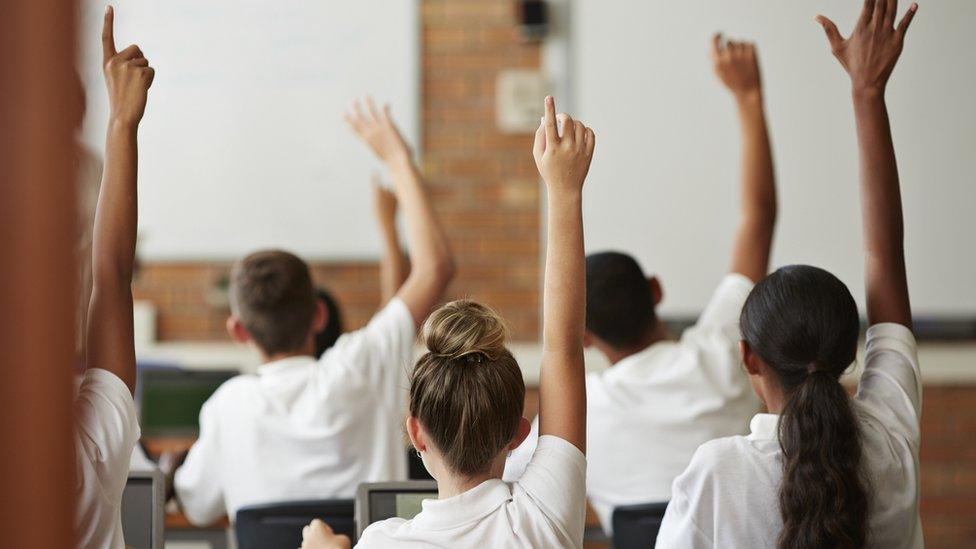Covid: 'No logic' to keeping schools open in London
- Published
Parents and teachers have criticised the closure decisions
Plans to close primary schools in some London boroughs but not others have "no logic", council leaders have said.
About a million primary school pupils will not return to lessons as planned next week in a bid to cut the transmission of coronavirus.
Schools in 10 London boroughs will remain open under government plans. London is under tier four restrictions following a spike in Covid-19 cases.
The Department for Education said measures would be reviewed fortnightly.
Danny Thorpe, Labour leader of the Royal Borough of Greenwich, said: "In a case-by-case comparison, there appears to be no logic to how this list was brought together.
"Kensington and Chelsea has one of the lowest infection rates for the whole of the capital, yet their children and young people are being afforded the extra protection that apparently Royal Greenwich students don't need."
The government threatened Greenwich Council with legal action after it issued advice to schools to move to online learning for the last few days of term.
All primary schools had been due to fully reopen on 4 January but under government plans those in 23 London boroughs will remain closed.
Children of key workers and vulnerable pupils will still be able to attend lessons.
Education Secretary Gavin Williamson said schools would be reopened as soon as possible.
Testing for primary school staff would then follow later in January.
Mayor of London Sadiq Khan called the plans "nonsensical".
The mayor said he had written to the government calling for a "delay to all London schools opening until mid-January".
He said: "Many parents in London live in one borough but their children go to school in another borough.
"It shows the government don't understand our city."
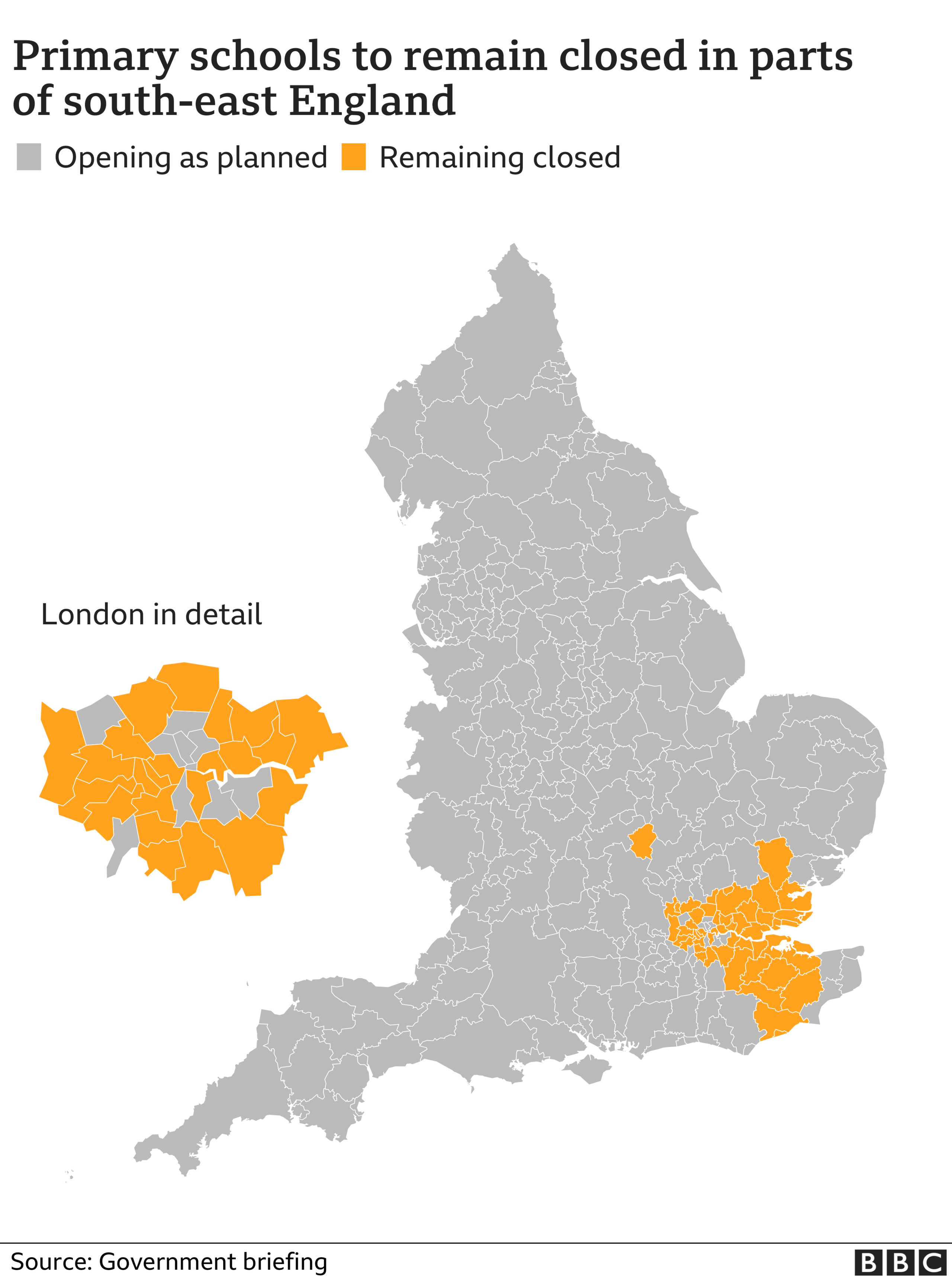
Richard Watts, Labour leader of Islington Council, said: "It is deeply frustrating that the government has made this announcement at the last minute."
It comes "weeks after it was clear coronavirus cases were surging in London", he said.
Some school leaders being told to keep their doors closed for longer are also unhappy at the government's decision.
Brinder Bains, deputy head teacher at Ronald Ross Primary School in Wandsworth, said it was "really unfortunate" her staff would have to wait longer to welcome back pupils.
She said many children did not have the "devices or connectivity" to make home learning work.
Ms Bains said: "I know the kids want to be at school.
"They want to be face to face with teachers and with their classmates. That's the best environment for them."
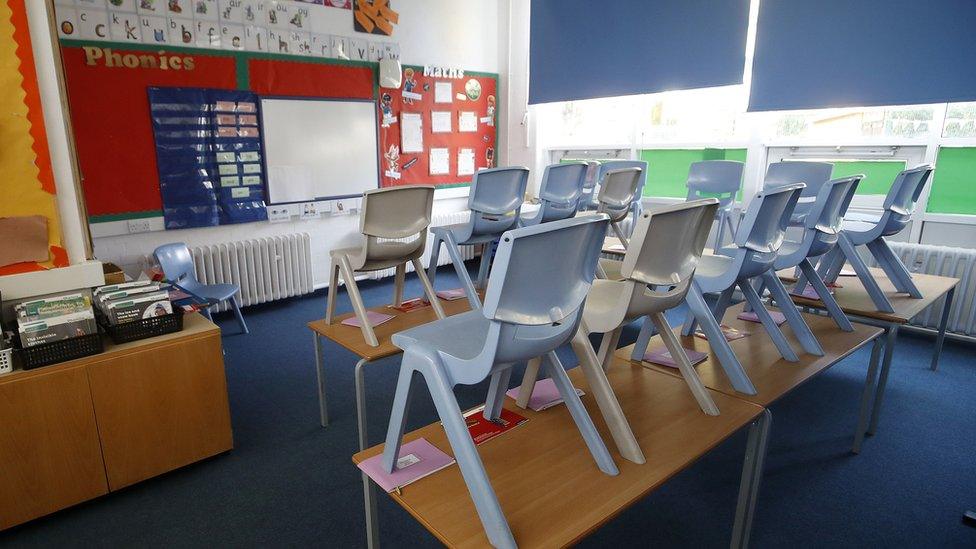
About a million primary school pupils will not return to lessons as planned next week
Schools in the City of London, Camden, Greenwich, Hackney, Haringey, Harrow, Islington, Kingston, Lambeth and Lewisham, will open.
All of these areas, apart from Camden, have an infection rate higher than the England average.
In the week leading up to 25 December, the combined infection rate for Hackney and the City of London was 810.75 cases per 100,000 people.
The average rate in England is 549.5 cases per 100,000.
The Department for Education said decisions on school closures and openings were based on new infections, positivity rates, and pressures on the NHS.
It added plans were made in consultation with Public Health England, the NHS, the Joint Biosecurity Centre and across government.
A spokeswoman for the department said: "In response to concerning data about the spread of coronavirus, we have implemented the contingency framework for education in a small number of areas of the country, requiring schools to provide remote learning to all but vulnerable and critical worker children and exam years.
"Decisions on which areas will be subject to the contingency framework are based on close work with PHE, the NHS, the Joint Biosecurity Centre and across government to monitor the number of new infections, positivity rates, and pressures on the NHS."
Related topics
- Published25 November 2020
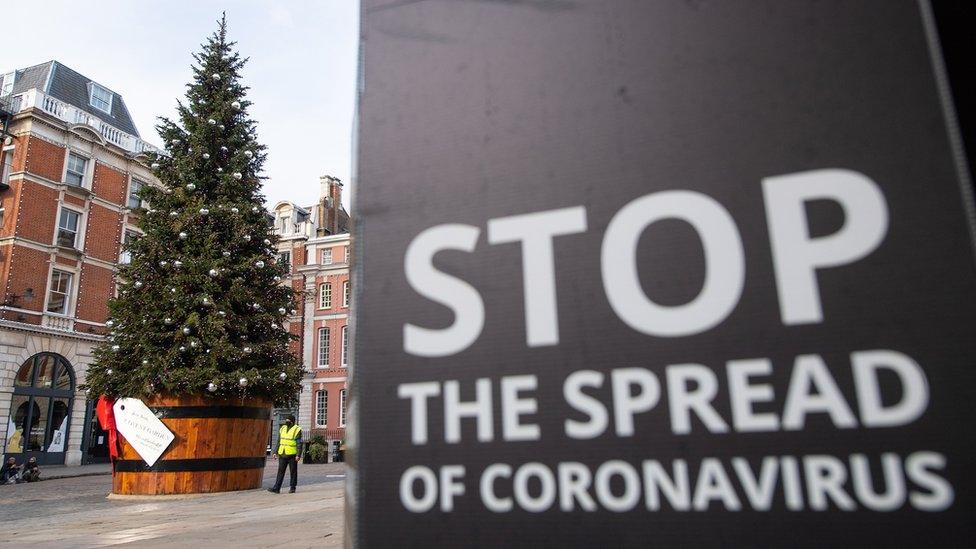
- Published30 December 2020
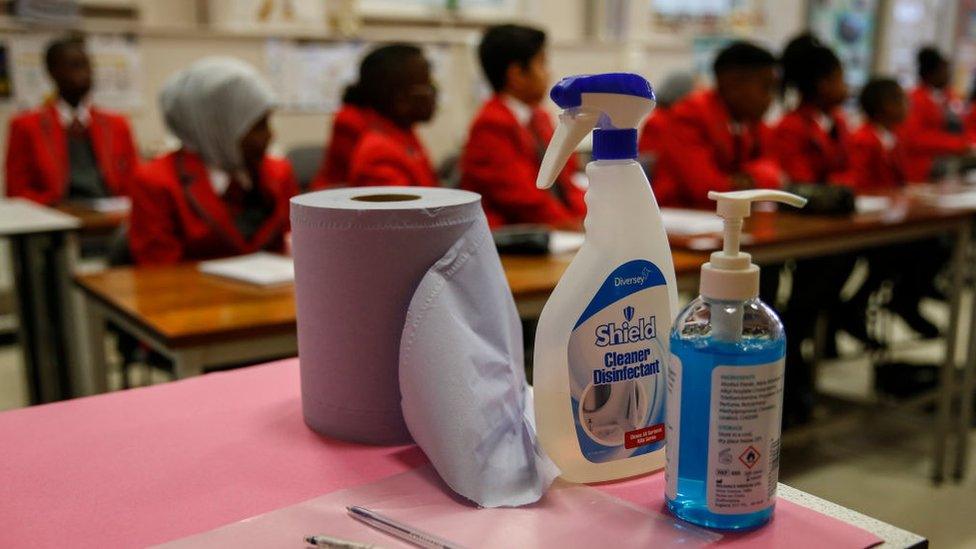
- Published14 December 2020
